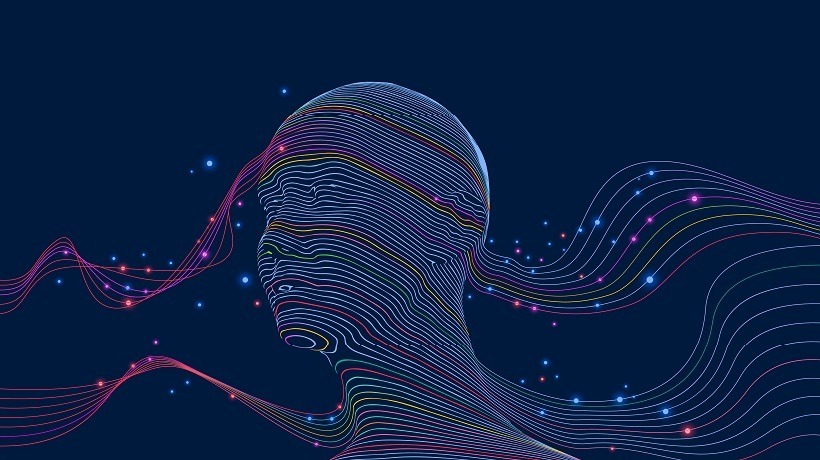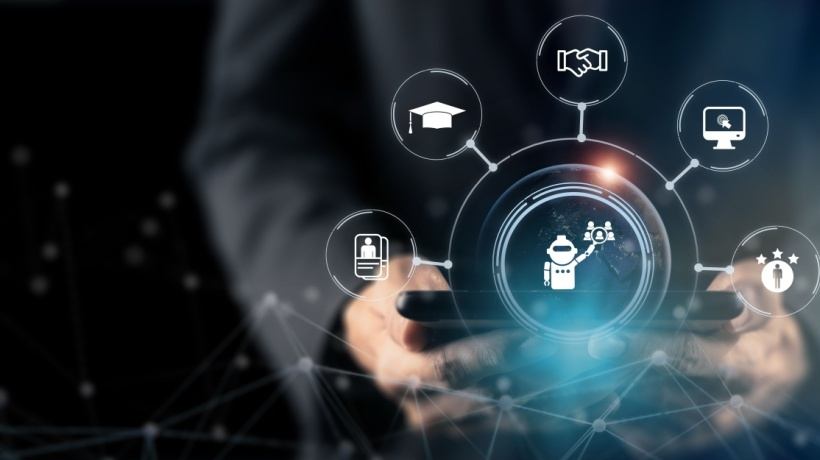AI In eLearning For Personalized Experiences
Artificial Intelligence (AI) is reverberating across sectors, but the education sector is the one industry witnessing AI’s transformational potential. According to Global Market Insights [1], AI in education will see a 10% CAGR from 2023 to 2032. Specifically, the AI’s smart content segment that delivers improved learning experiences will witness a CAGR of 25%. And the usage of AI in eLearning has been revolutionary for its ability to provide personalized learning experiences. eLearning has penetrated every area of education, be it school education or employee training. It is now an essential part of pedagogy. But, by leveraging AI in eLearning, educational institutions and business entities can personalize learning for better outcomes.
Why Do Personalized Learning Experiences Matter?
Personalized learning is the realization that the traditional educational approach of "one-size-fits-all" does not cater to the needs of every individual. As each person has distinctive ways of learning, personalization helps them achieve desired outcomes. For example, a child with an above-average IQ can grasp ideas more quickly than a child with a moderate IQ. Giving the same educational course to both children will leave one behind while the other shines. But, by designing and delivering courses specific to the IQ levels of both children, they learn at their own pace and comfort level.
The same is the case with personalized learning for employees. Each individual is different, and a "one-size-fits-all" learning course doesn’t work. For example, if one employee finds visual learning more attractive than textbook manuals, another may prefer one-on-one learning to group presentations. Training each individual according to their liking will benefit them. With personalized learning, employees can benefit in many ways. And for organizations, a well-trained workforce is a productivity boost. This is where AI in eLearning comes in handy. It takes a "one-size-fits-one" approach, automates the delivery of personalized learning experiences, and helps educational institutions and businesses respond quickly to the growing learning needs of a digital workforce.
How AI Helps Deliver Personalized eLearning Experiences
Here is how AI delivers a personalized experience for learners:
1. Control Over Learning
A great benefit of AI in eLearning is that it enables a student to control their learning trajectory. Based on the learning outcomes, an eLearning platform with AI may recommend micro-lessons or provide extra work. It may review performance in assessments and analyze the strengths and weaknesses of the learners, suggesting ways to improve. If an employee struggles to learn a new skill, the AI tool adapts the training course to the difficulty level of the individual, helping to master the skill gradually. Some platforms gamify the learning process to stimulate employee interest in the training course and achieve the objectives. Moreover, with an AI-enabled eLearning platform, a student can set the pace of a course to their liking and schedule it automatically.
AI does all this by deeply analyzing the data generated by the users. The responses and actions, preferences and performances, and the behavior of the users on the platform all go into accurately building their profiles based on science. The result is a personalized experience that engages students with immersive pedagogy.
2. Accurate Content Delivery
Often, eLearning platforms provide generic content for a course. Such content may be irrelevant to individuals who are looking for specific needs. But with an AI-based platform, this problem doesn’t arise. The content delivery will be so accurate that a learner need not scour the internet for relevant content. Through non-graded assessments and other methods, the algorithms understand a person’s requirements and recommend a course specifically for their needs. This is personalized learning at its best!
Many organizations are now deploying AI-based Learning Management Systems (LMSs) where employees can access lessons, presentations, training manuals, tests, and lectures, all in one place. Statistics project that 47% of LMS tools by 2024 will be AI-driven. These intelligent eLearning platforms provide targeted content for learning. For example, AI platforms can identify skill gaps in an employee and help fill them by delivering a course aligned with the employee's professional goals.
3. Real-Time Feedback
With AI, students can receive meaningful feedback instantly. eLearning platforms with AI often deploy chatbots that can answer support queries in real time. The platform also mentors the user when facing difficulty understanding concepts. Intelligent Tutoring System (ITS), a critical part of eLearning AI, helps teach complex subjects effectively. It uses the power of machine learning (ML) to simulate teacher-student interactions and give insights into how an employee learns, enabling tutors to create a better learning interface. The powerful learning analytics of an AI visualizes a learner’s performance, giving them accurate feedback. Students can assess their learning trajectory and adjust their efforts with the insights gained.
4. New Content Creation
Creating eLearning courses is a time-consuming task. One must sift through mountains of information to create new content for students. But by leveraging AI, content creation is made simpler and faster. AI technology can quickly create new courses by processing tons of information generated by learners. It can curate content specifically to the learning needs of an individual. For example, if you want an eLearning course to be available in multiple languages, an AI tool with language translation capability [2] can quickly deliver the course in any language. Moreover, with AI powering content creation, your Instructional Designers can work on pressing matters like improving course material based on AI’s suggestions or creating innovative methods to impart education.
5. Enhanced Motivation
Personalized courses make learners feel empowered. Employees, especially, believe that they are being taken seriously by the organization. They gain extra motivation to complete a course as they set a comfortable pace based on their performances. And targeted classes will pique the learner's interest and motivate them to take the journey.
A Win-Win Proposition!
All in all, AI in eLearning is a win-win proposition for students, employees, tutors, and organizations. While students can gain the motivation to pursue their desired subjects and gain knowledge, employees can save time and energy by learning only relevant information required for their job. And for admins or tutors, an AI eLearning platform frees time, automates tedious tasks, removes bias, and accomplishes more.
Wrapping Up
AI is an intelligent system. To make it more intelligent and provide meticulous personalized learning, it must feed on new and relevant data for training. The system must be exposed to multiple variables and input data types. It then self-learns and improves functionality at each data feeding cycle. If you want to hire an AI system, learn whether it is well-trained. Not all AI-based eLearning platforms can deliver personalized learning experiences in the truest sense.










